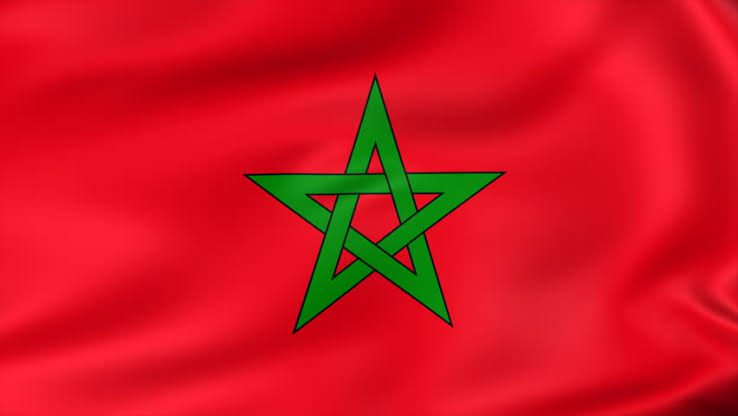Global Issues
The Corruption Going On At The Moroccan Embassy In Abuja -By Shayera Dark

Staff at the Moroccan embassy in Abuja are operating a racket. I know this because I applied for a visa in October.
As with any visa application process, my first course of action was to visit the Moroccan embassy’s website for information, but was surprised to find none exists. After a few minutes of scouring the internet, I found the embassy’s purported phone number and physical address, then made a phone call to confirm their veracity and opening times. A woman answered with the annoyed brusqueness typical of Nigerian civil servants, verifying that the address was correct. She told me to download the visa application from the Moroccan Consulate’s UK website and that I could only submit this from Monday to Thursday, which was pertinent but undisclosed information in the official literature, that would have cost me unnecessary hotel bills had I flown to Abuja on a Friday, as initially planned.
Armed with the requisite documents in an envelope, I took the first plane out of Lagos to Abuja the following week and rode a taxi to Lake Chad Crescent in Maitama, the embassy’s location, where a security man instructed that I leave my hand bag and phone on a table adjacent to the gatehouse in the compound. In equal parts surprised and miffed by the lack of storage facilities, I grabbed my purse and proceeded to the visa processing office.
Inside, an embassy staff, presumably the same woman who had taken my call earlier, demanded I submit my documents in an office flat file as stipulated in the visa requirements. When I asked if there was a stationery shop nearby, she claimed not to know.
I followed another applicant she had given the same instruction towards the gate, bemused by the preference for folders, which are prone to slippage, over the secure enclosure of envelopes. What was clear, however, was the fact that the security man had set up shop, providing hapless visa applicants the incredibly vital piece of stationery at N200 a pop. Whether he and the woman in the office are partners in the venture is unclear but highly probable.
Back in the office, I asked the woman about the visa fees. Once again, she claimed not to know how much it cost, adding that her colleague would inform me. After a brief wait, she ushered me into another office, where a man reviewed my documents and asked a few questions pertaining to my trip. Then I asked about visa cost. He said I would pay after the visa is issued, and that I should “bring something like N30,000,” which struck me as bizarre since embassies have fixed fees for various visa types and payment was made prior to or on the day of application.
Another thing that was awry was his insistence on cash payment, which was reiterated to my proxy when they collected my passport. The embassy staff also refused to issue a receipt for the transaction, threatening to revoke my visa if my proxy persisted with the request.
The decision of the Moroccan embassy in Abuja to eschew an online presence, and its inability to prominently display the visa fees in their office or issue receipts, smacks of a deliberate attempt to extort Nigerians. What’s more, the foreign mission’s absence online not only breeds corruption but disinformation. A case in point: the embassy staff I spoke with on the phone said I had to submit my documents in person. But a week later, an acquaintance said she’d paid N180,000 to a travel agent to submit in her stead. A couple resident in Lagos, who applied in October, told me they’d gone through an Abuja-based agent.
For my part, I spent roughly N120,000 alone to acquire a Moroccan tourist visa, which includes a return flight ticket from Abuja, associated taxi fares, visa cost, travel insurance and DHL charges to courier my passport. Meanwhile, prospective visa applicants in the UK pay less in visa and transportation. A single entry visa costs £20 (N9,287) and £27 (N12,538) for the multiple entry, and prospective visitors can apply by post if they live outside Greater London as indicated on the website of the Moroccan Consulate in London.
At the heart of it, visas are designed to confine groups of people — especially from former colonies — within borders. Those who dare to travel must demonstrate they’re worthier than their poorer compatriots, with beefy bank statements, to gain admission into these so-called developed countries, which are likely involved in the continued exploitation and impoverishment of the visa seeker’s country.
Given this history and the fact that Africans moved freely within the continent before Europeans carved out artificial “nations” purely for their own financial gain, it’s laughable that African governments are reluctant to ease intra-African travel and trade for Africans, even as Westerners of all stripes waltz in and out of the continent visa-free and with little scrutiny. Out of Africa’s 55 countries, only Benin Republic and the Seychelles admit Africans travellers without a visa.
Granted, the African Union plans to issue passports to all Africans in a bid to facilitate commerce and movement of people. While this is a welcome development, it’s one that has been a long time coming for Africans, who shouldn’t have to spend exorbitant sums of money on visa acquisition or provide bank statements to traverse and lay claim to the continent as our ancestors once did.
Shayera Dark writes from Lagos.


















